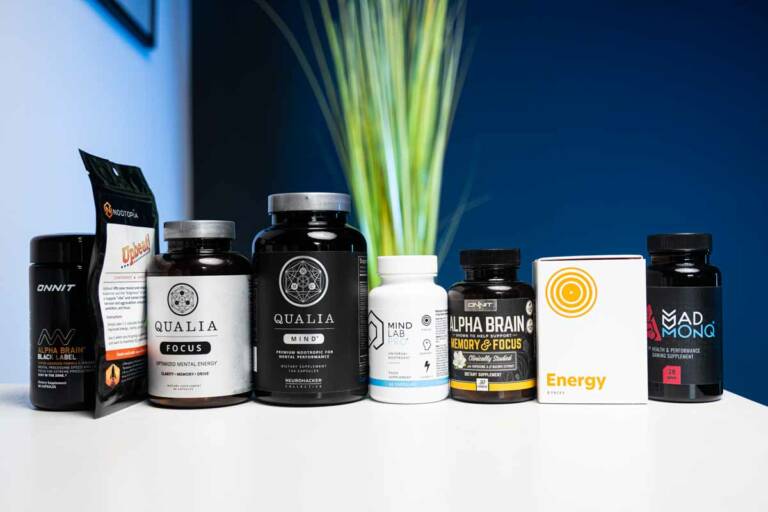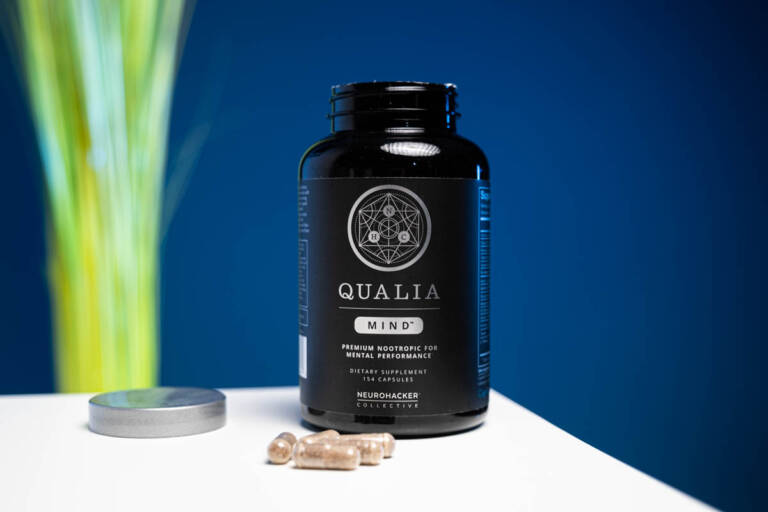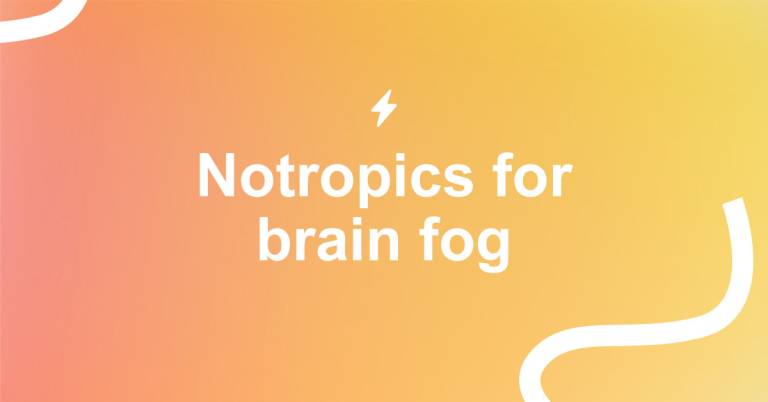Attention Deficit Disorder (ADD) can be hyperactive or not. In instances where it is, the condition goes by the name of ADHD or Attention Deficit Hyperactivity Disorder. Both scenarios share common traits that are typically associated with a lack of focus and concentration, impulsive behavior, difficulty multitasking, or having little control over emotions or actions.
These and other symptoms of ADD and ADHD are strongly linked to the level of essential neurotransmitters in the brain that help maintain focus, alertness, and sustain thought and motivation. The best nootropics for ADHD and ADD primarily focus on stabilizing these neurotransmitter levels for improved connectivity within the brain, improve neuronal health, and help foster an overall healthy brain environment.
Important Neurotransmitters Involved
Key players contributing to ADD and ADHD symptoms include dopamine and norepinephrine. And in today’s modern world, recent research indicates that the interaction between dopamine and serotonin also has a part to play. In addition, another neurotransmitter, acetylcholine, also merit attention in this regard.
But back to the basics first. Optimal levels of both dopamine and norepinephrine are crucial in managing ADD and ADHD symptoms as these are integral to the processes of paying attention and thinking. Dopamine, for instance, drives motivation and reward/gratification functions. Norepinephrine, on the other hand, manages attention, vigilance and sleep cycles.
Plus, dopamine also synthesizes into norepinephrine in the brain which is crucial as it helps the brain collect what the senses pick up. As such, by boosting the norepinephrine and dopamine levels, it can become possible to balance out hyperactivity and help calm the mind, assisting to focus better.
But when it comes to behavior and impulse control, serotonin seems to be the key player. This neurotransmitter is involved in the uptake, synthesis, and breakdown of dopamine in the brain. And issues with serotonin seems to contribute to behavior and impulse control.
Finally, there is acetylcholine. This neurotransmitter is needed for memory retention, focus, learning, concentration cognition, and motor control. People with ADHD often lack this important brain chemical as there is an issue with how choline, its precursor, gets transported in an ADHD brain.
The recommended nootropics here all focus on optimizing levels of these important neurotransmitters.
Why Choose Them?
One of the main reasons why people turn to nootropics for ADHD symptom management is because they want to stop taking traditional medications such as Ritalin or Adderall. While these ADHD drugs or ADHD medications can be very effective for managing symptoms, they also bring along severe side-effects which can be very debilitating in the long run for the ADHD patients.
The most common of these side effects include:
- Anxiety
- Irritability
- Hypertension
- Heart problems
- Loss of appetite
- Sleep disturbances
- Addiction
In addition, people may also look to nootropic supplementation for an additional boost. This additional boost can help cut down the number of medications or other stimulants they take for ADHD symptom management. Instead, these brain-boosting nootropics have many cognitive benefits, present a safer, more natural and stim-free alternative therapy that may help improve attention, productivity and more.
While both traditional ADHD stimulants and nootropics work with the intention to boost dopamine and norepinephrine levels, there is one concrete difference. The former, stimulate a temporary, synthetic brain state of intense focus and attention but also induce long term side effects in someone’s life who takes it. But where ADHD stimulants flush the brain with inordinate amounts of neurotransmitters, nootropics sustain and optimize neurotransmitter pathways to improve executive functions.
This makes nootropics natural substances that engage with natural pathways to healthier, enhanced cognition.
Phosphatidylserine (PS)
PS is critical to brain cell membrane health which in turn, affects working memory and long-term neuroprotection. Being a multi-tasker for brain health, it is very helpful when stacked with Omega-3 fish oil and works equally well for both kids and adults. [1]
PS is a form of phospholipid involved in cell repair. It performs a number of unique regulatory and structural functions by determining the structure, integrity, and function of brain cell membranes. [2]
Optimal levels help improve energy production within brain cells which may help those diagnosed with ADHD cases by providing better mental clarity and improvements in memory and mental tasks.
L-Tyrosine
L-Tyrosine, or in its preferred form known as N-Acetyl-L-Tyrosine, acts as a precursor to both dopamine and norepinephrine. Usually, the brain burns tyrosine reserves during periods of stress and anxiety giving it the much-needed boost of focus and attention in otherwise stressful situations. It’s relevance to ADHD becomes clear as stress aggravates ADHD symptoms. [3]
Plus, since dopamine can help regulate mood swings and other brain activities, impulse behaviors and emotional responses in ADHD sufferers may be controlled by L-tyrosine supplementation.
The one downside to using L-Tyrosine supplements as ADHD treatment is that over time, the brain develops a tolerance to it.
Mucuna pruriens
Mucuna pruriens is a powerful dopamine source as it contains an amino acid known as L-Dopa able to cross the blood-brain barrier and increase blood flow. Because this is a natural and direct source, it is considered much more effective than other dopamine-based supplements. [4]
This balancing and restorative effect on the nervous system is what makes Mucuna pruriens relevant to ADHD symptom management. Another facet of dopamine production is that dopamine activity has been investigated to improve learning and memory. The effects of feel-good dopamine also impact social behavior which is another area in which ADHD sufferers need symptom management.
N-Acetyl Cysteine (NAC)
NAC is a supplement form of cysteine which is a semi-essential amino acid. Maintaining adequate levels of cysteine in the body is important for a number of reasons including replenishing the powerful antioxidant, glutathione. This antioxidant assists in preserving and promoting brain health and a deficiency has been established as one of the primary causes of ADHD and cognitive disability. [5]
As such, NAC is highly valued for its role in antioxidant production. Various studies show that NAC can help boost glutathione supplies in the body, making it a favored nootropic for anyone with ADHD. It is also recommended for reducing the negative effects of Adderall, a stimulant drug used by many to manage their ADHD symptoms.
Maritime Pine Bark Extract
Maritime pine bark extract contains pycnogenol, a natural substance used for treating several conditions including ADHD. It contains several active compounds that seem to help with symptom management. One study showed lower levels of hyperactivity in children with ADHD who took a daily pycnogenol supplement for four weeks. The children also seemed to experience improvement in their attention span, concentration, and visual-motor skills. But the symptoms started to return a month after treatment stopped. [6]
Likewise, another study looked at pycnogenol’s antioxidant effects on oxidative stress which is seen as one of the nongenetic contributory factors of ADHD. Children taking a pycnogenol supplement for one month showed healthy antioxidant levels. [7]
5-HTP
This amino acid is known for boosting serotonin production. Serotonin is important for sleep, mood and appetite control and supplementing serotonin levels has been seen as beneficial for numerous areas of health including those diagnosed with ADHD. [8]
Plus, since ADHD can have co-morbid disorders such as mood disorders and depression, using 5-HTP in some studies has proven to be beneficial.
Ginseng
Ginseng boasts a reputation for stimulating brain function and the red variety also holds some potential to calm ADHD symptoms. The two popular varieties are American ginseng and Asian ginseng. Both types vary in their concentration of active ingredients and effects on the body. Of the two, the former works as a relaxing agent while the latter yields an invigorating effect.
Our concern here today is with American ginseng with its calming effect. One study working with 18 children diagnosed with the condition administered 1,000 mg to participants for 8 weeks. Findings showed improvements in personality, anxiety and social functioning. [9]
Gingko Biloba
Like many other nootropics, Ginkgo Biloba has also enjoyed a long history of improving memory and increasing mental alertness. Regarding ADHD, research presents promising results where Ginkgo Biloba improves ADHD symptoms for children taking supplementation for 3 to 5 weeks. [10]
Another similar study worked with ADD adults and showed that during treatment, the participants showed improvement in hyperactivity, attention problems, and immaturity factors. Both studies indicate that Ginkgo Biloba may be a helpful treatment of ADD with minimal side effects. [11]
Many neurohackers suggest stacking Gingko Biloba with ginseng for ADHD symptom management with one study showing that a mixture of the two showed improvements in impulsivity and social problems. [12]
B vitamins
This group of vitamins is essential for maintaining a healthy nervous system among other metabolic functions. As such, it is considered important for attention and executive functioning. The B vitamins are also used to reduce fatigue and improve mood while also boosting attention.
There are several types of B vitamins with each one supporting the brain and body in different ways.
With regards to ADHD, for instance, B6 is crucial for manufacturing important neurotransmitters such as serotonin. A deficiency of this vitamin can cause irritability and fatigue in children and adults with ADHD while supplementing with optimal levels increases alertness and decreases anxiety-like symptoms.
Another B vitamin, B3 can help reduce the severity of behavioral problems, hyperactivity, and loss of concentration associated with ADHD. It also helps calm the nervous system, so is considered useful for curbing irritability and restlessness.
Another important vitamin in this group is B12 which also helps produce and regulate neurotransmitters. A vitamin B12 deficiency can produce ADHD-like symptoms such as memory loss and confusion.
These vitamins work together synergistically to support critical brain functions and are co-factors to each other. This means they help each other be absorbed and utilized properly by the body.
Rhodiola Rosea
Rhodiola is an adaptogenic herb with neuroprotective properties. It also helps bolster levels of neurotransmitters and improve the balance between serotonin and norepinephrine. The herb increases sensitivity in the nervous and neurological systems that produce dopamine and serotonin which makes it helpful in managing some of the symptoms associated with ADHD. This mechanism can help enhance alertness which is critically lacking in people with ADHD. [13]
Typical uses for Rhodiola show it to be highly effective for countering the effects of fatigue and improving sleep quality. These anti-fatigue effects make it effective for improving attentiveness and now recent research adds to that by showing how Rhodiola can also be equally effective for anxiety and memory issues.
L-Theanine
L-theanine is an amino acid found in tea that does a number of helpful things. Among other functions, it helps promote relaxation and facilitate sleep by boosting GABA levels and those of other brain-calming chemicals. This includes dopamine and serotonin which help regulate mood, emotions, alertness, concentration, and sleep problems like insomnia. [14]
At the same time, L-theanine also lowers levels of excitatory brain chemicals linked to stress and anxiety. This mechanism produces an effect of calm which can help combat typical ADHD symptoms. And finally, L-theanine enhances alpha brain waves.
Alpha brain waves help the brain maintain a state of wakeful relaxation such as one experiences when meditating, or being creative. Studies on the subject show L-theanine to trigger the release of alpha waves which results in the brain being better able to relax, focus, and be creative without the hyperactive element.
So, basically you get the effect of relaxation but without the sedation.
Verdict
Some studies indicate that combining certain nootropics may yield better results or increase effectiveness than using them on their own. This means that it is highly recommended that you consult with your doctor or another specialist for more information. It is best to get professional advice on which combination will work better since the FDA does not regulate or monitor many of these nootropics. The fact that some may interfere with other medications is another reason why you should never start any nootropic without prescription or consulting with a professional first.
Many nootropics mentioned in this post can be found in high-quality nootropic supplements. To check out our top list, click on the button below.






0 thoughts on “Best Nootropics for ADHD and ADD: Our Top List”
Which of these would you group together safely as a stack for the best effect?
Hi Jo, depends on the type of ADD you have. Send me an email to [email protected] and I’ll send you some great suggestions :)
Hypothetically, for an adult with ADHD-i (inattentive) what stack would you suggest to start with? Thanks.
Hi buddy, just send me an email and I’ll send you a personalized nootropic stack for Inattentive ADD :)